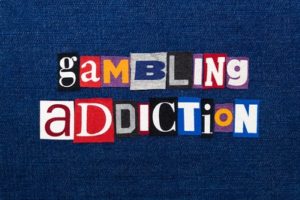 When the average person thinks about a typical bettor or casino gamer, there is potentially a variety of images that pop up from person to person. Some will picture people in a land-based casino betting on roulette, others will consider someone in the bookies gambling on horse races, and maybe some will consider those betting from their home computer or phone. But is there something that can really be considered as ‘the typical customer journey’ when it comes to the gambling? Based on a person’s specific situation, the journey itself is likely to look and to feel different from everyone else’s.
When the average person thinks about a typical bettor or casino gamer, there is potentially a variety of images that pop up from person to person. Some will picture people in a land-based casino betting on roulette, others will consider someone in the bookies gambling on horse races, and maybe some will consider those betting from their home computer or phone. But is there something that can really be considered as ‘the typical customer journey’ when it comes to the gambling? Based on a person’s specific situation, the journey itself is likely to look and to feel different from everyone else’s.
Yet, according to the United Kingdom Gambling Commission, the type of gambling activity that a person is participating in will doubtless have a significant impact on their journey. By this, it is implied that people will have different internal feelings when participating in different gambling activities, while the external triggers for getting involved in such are also different. And in order for the Commission to further understand why people gamble, it opted to delve deep into the typical consumer journey. This means that the beginning of their interaction right through to the end is on display.
In conducting this research, the Commission wanted to understand things from a gambler’s perspective. And that is doubtless different to the perspective of a gambling operator or the regulatory body itself. The idea was also to understand what factors influence people to engage in gambling, where the greater risks are, how consumers experience the activity and also look at when the opportunities for intervention arise.
How Did the Commission Explore the Typical Journey?
 To ensure it was getting the best sort of information regarding typical consumer journeys, the UKGC utilised three stages of research. The first stood out as the Scoping Phase, which surrounded desk research on existing knowledge, utilising previous projects and external research while identifying gaps in the current understanding.
To ensure it was getting the best sort of information regarding typical consumer journeys, the UKGC utilised three stages of research. The first stood out as the Scoping Phase, which surrounded desk research on existing knowledge, utilising previous projects and external research while identifying gaps in the current understanding.
It then went on to conduct qualitative exploration of consumer journeys. For this, it hosted in-depth interviews with players, so as to build a rich selection of behaviour and attitudes towards gambling in the initial stages through to how it becomes embedded in people. A total of eighteen 1.5-hour interviews were held with gamblers, relating to various types of gambling activity. At the same time, 27 participants kept digital diaries across two weeks, capturing information about the consideration and play experience while it is occurring. Participants in this stage were a range of ages, located in various places across the UK, had different backgrounds and so on.
The final stage was a 20 minute online quantitative survey, which enquired as to the influences that players may experience at each path to play stage. The questions were anchored to a single recent gambling moment, allowing the data to be interpreted by the type of activity engaged in. A total of 937 gamblers who had all gambled within the last 12 months were surveyed this way, with the only exclusions being those people who had partaken in lotteries.
The Stages
 There are Six stages exist on the path to play journey, which are passive influences, external triggers, internal impulses, active search, play experience and play outcome. And the stages that these are experienced come in sequential order, with the exception of external triggers and internal impulses. Those are more than often likely to occur simultaneously.
There are Six stages exist on the path to play journey, which are passive influences, external triggers, internal impulses, active search, play experience and play outcome. And the stages that these are experienced come in sequential order, with the exception of external triggers and internal impulses. Those are more than often likely to occur simultaneously.
Here is a bit of further insight into these stages and what they mean:
- Passive Influences – A journey to gambling often starts out with how a person thinks and feels about the activity in general. That can evolve over time, of course, with our upbringing, the people we socialise with, the unexpected encounters with gambling that we may experience, and so on.
- External Triggers – Something of this nature relates to the communication by gambling operators, the prevalence of gambling advertisements on television, radio, billboards etc. and conversations with others about gambling. While external triggers don’t specifically prompt you to take direct action in that very moment (and often aren’t directly linked with gaming at all), they do build players awareness and provide incentives.
- Internal Impulses – These are reasons to gamble, which are nudged by external triggers. The motivation for engaging in gambling are formed of a mixture of habitual and social behaviour, as well as perceived knowledge, the skill or luck advantage and a desire for winning money.
- Active Search – Once a player is motivated to gamble, the next step is to decide upon when and where to experience it. This stage can be of a different speed and complexity for everyone, with some people having a default app or venue to visit and others having to register at a new place.
- Play Experience – Whether you’re engaging in a single bet or a session of gameplay with multiple bets being made, this stage encompasses your overall enjoyment of it. During this, the amount of time spent playing can be extended by advertisements and offers from gambling brands, too.
- Play Outcome – Of course, the outcome of your gambling activity is always going to affect your journey. Whether you lose or you win will have a long-term and a short-term impact on your attitude towards gambling and your behaviour. This also shapes the future consideration of gameplay, with some outcomes resulting in a return to the beginning of the journey and others leading to other paths, such as taking breaks from it.
Influences at Each Stage

It is usually the case that a small few particular influencing factors exist at most stages, despite there being many of these at most stages. These factors have greater or lesser influence, depending upon the stage of the journey you’re at.
What are the largest influences at each stage that encourage more gambling to take place?
- The biggest passive influence factors are winning a significant amount of money through gambling (28%) or hearing of someone else who has had a big win via gambling (27%). Other significant highlighted factors include taking part in any type of gambling activity, seeing or hearing adverts about gambling brands, receiving communication from gambling companies, and gambling with friends.
- The biggest external trigger influences are catching the eye, special offers and direct communication via emails, text message or app notifications. It was also noted that good odds or the prizes on offer serve as being particularly influential when they occur.
- The biggest internal impulse factors are to win some money – even if it is a small amount – (43%) and to have an entertaining, fun time (38%). Interestingly enough, the next factor in line was that it was a spontaneous decision, closely followed by players giving themselves a treat.
- The biggest active search factors noted were the players’ familiarity with an operator, as well as their previous experience with an operator or a specific game or bet.
- The biggest play experience influences on the duration of gameplay are winning a game or a bet and having plenty of fun with the activity.
- There is very little that can be said about play outcome factors, because this stage is more about reflecting on the gameplay experienced. Winning or losing may, of course, inform the proceeding behaviour, as it is likely to form part of the passive influences before the next journey begins.
The Impacts Measured
| External Triggers | Internal Impulses | Active Search | Play Experience | |
|---|---|---|---|---|
| Online | – Special Offers
– Direct Messages – Tips – Good Rewards |
– To Pass the Time
– For Enjoyment |
– Familiarity
– Trust – Past experience |
– Winning
– Having Fun – Special Offers |
| Land-Based | – Suggestion from Someone Else
– It Caught My Eye |
– Spontaneity
– Feeling Lucky – Being Social |
– Caught My Eye
– Feels Like Fun – Felt Good |
– N/A (Reflects the overall gambling journey) |
| Betting | – Tips
– Good Rewards – Special Offers |
– For Enjoyment
– To Feel Part of Something |
– Having an Existing Account
– Money in the Account – Ease of Withdrawals – Trust – Previous Experience |
– Direct Communication
– Receiving a Tip |
| Gaming | – It Caught My Eye | – Spontaneity
– Feeling Lucky – To Pass the Time |
– Caught My Eye
– Feels Like Fun – Felt Good |
– N/A (Reflects the overall gambling journey) |
What are the effects of different types of gambling activities contributing to a journey? Well, the influences do differ, depending upon if you’re accessing gambling online, at a land-based venue, and if you’re partaking in gaming or betting. See the table above for how these play.
It seems ideal to highlight certain key differences discovered through this research, too.
When it comes to the betting and online activities, special offers, unusually good odds/rewards and direct communication play a much greater role. Past experience is also a factor, whether that be the experience of playing before, winning games or simply having had an account set up with funds in it.
With regard to games and land-based gambling activity, catching the eye of a player is a big contributing factor as far as the external triggers and active search phases are concerned. Spontaneous decisions being made as a result of this are also often made in these areas, while feeling lucky and having fun while playing stand out, too.
The areas of betting and gaming do appear to have completely opposing internal impulses, though. Betting activity seems to be driven by a desire to add excitement to another event taking place (such as a sports game occurring), whereas games are more often than not motivated by players simply looking to pass the time away with something interesting. This could perhaps be a reason why some people fall into the trap of not realising where the time has gone when it comes to casino gaming – because the incentive to do it is to simply pass time for many people.
What About Those Gamblers Who Are at Risk?
 It is not recent news that has highlighted people in Britain being significantly affected by gambling. For the past several years, stories have arisen about minors and vulnerable gamblers somehow finding their way into the gambling scene and suffering for it. Research published by Public Health England (now known as the UK Health Security Agency) in September of 2021 estimated that around 0.5% of the adult population (around 246,000 people) in the country is likely to have a form of gambling addiction. Another 2.2 million people are also considered to be problem gamblers or at risk of suffering from such.
It is not recent news that has highlighted people in Britain being significantly affected by gambling. For the past several years, stories have arisen about minors and vulnerable gamblers somehow finding their way into the gambling scene and suffering for it. Research published by Public Health England (now known as the UK Health Security Agency) in September of 2021 estimated that around 0.5% of the adult population (around 246,000 people) in the country is likely to have a form of gambling addiction. Another 2.2 million people are also considered to be problem gamblers or at risk of suffering from such.
Those who fall into these brackets tend to be more heavily influenced by the different factors on their journeys. This relates to the number of factors affecting them as well as the extent by which they do so.
- Higher risk gamblers are more exposed to passive influences, which affects their behaviour. It is likely that safer gambling messages are witnessed by higher risk gamblers at the passive influences stage.
- A greater number of external triggers are experienced for higher risk gamblers, particularly when it comes to special offers provided, as well as direct communications and sponsorship.
- There is likely to be more motivation from internal impulses to win large amounts of money or pass the time by higher risk players.
- When it comes to the active search, there is little difference in what influences choices for all gamblers. Higher risk gamblers are more likely to put limits in place, though; it’s just that they aren’t as effective when it comes to adhering to them.
- Higher risk gamblers tend to experience more touchpoints than anyone else involved in gambling. Information provided by operators, other people and via special offers has a stronger effect. They are less likely to see information regarding safer gambling practices while engaging in gambling, though. These players are likely to come to the end of a session because they’ve over-spent due to these contributions.
- The final outcome for these players is that they will likely feel bad regarding the amount of money they have spent on gambling. This pushes them to take action afterwards, whether that be to take a break, set their limits or seek assistance for gambling addiction/problem gambling.
Impacts of Marketing and Safer Gambling Details
 Marketing can occur in many forms, be that through television advertisements, sponsorship, direct communication, billboards, and so on. These marketing options all have different purposes, and the different types generally tend to feature at different stages of a player’s gambling journey. This means that they can be influential at different stages for different players.
Marketing can occur in many forms, be that through television advertisements, sponsorship, direct communication, billboards, and so on. These marketing options all have different purposes, and the different types generally tend to feature at different stages of a player’s gambling journey. This means that they can be influential at different stages for different players.
Marketing and communications tend to influence the journey in the passive influences, external triggers and play experience phases. Special offers have quite the impact in the second of those highlighted stages, both in terms of how prevalent they are and the level of impact they have when they are received by a player.
Safer gambling messages, as well as interventions, are able to show up in numerous ways on a player’s path to play. Certain elements stand out as being more prominent at key moments, though. The interactions with such are as follows:
- Passive Influences – Safer gambling messages and information are frequently seen, but they tend to have minimal impact on a gambler reducing their activity.
- Active Search – Spending limits being set and an ability to track your spend tends to have little impact on operator choice at this stage. Setting limits at a site is highly under-utilised, with only 7% of surveyed players claiming they have used such a function before. This is a complete polar outcome to the number of people who said that they go into a gaming session with a budget set in their mind. Could more be done to intensify prompts and therefore encourage people to utilise digital limitations?
- Play Experience – Very few people claim to see details surrounding safer gambling from their chosen operators at this stage.
